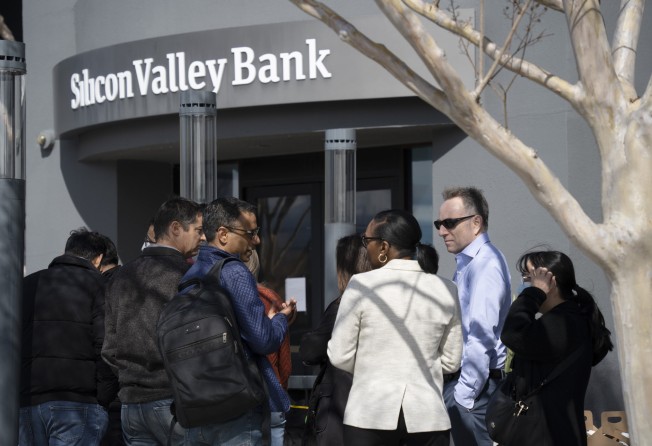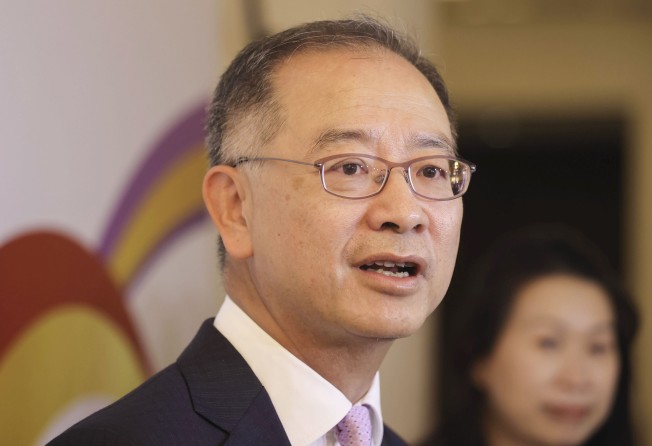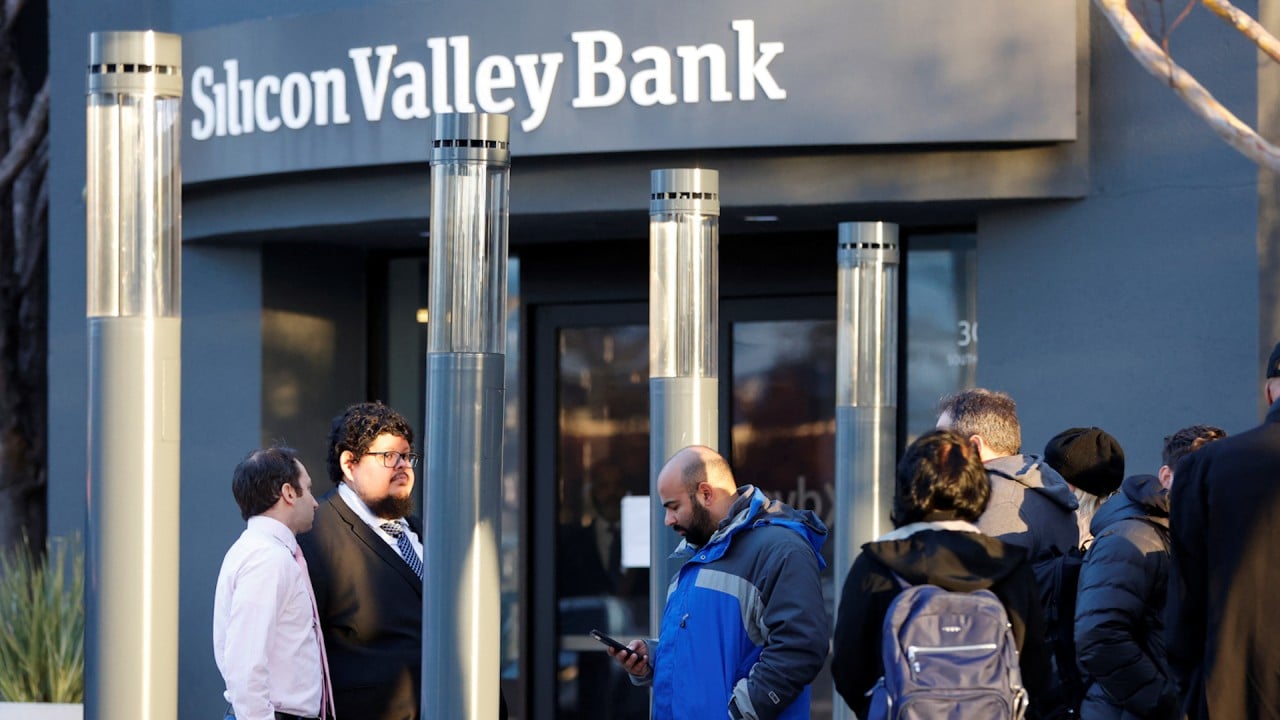
Global banking crisis averted, but banks and regulators must stay vigilant for more volatility, HKMA CEO Eddie Yue warns
- The situation has largely stabilised, but central bankers still need to watch for spillover effects, HKMA CEO says
- Hong Kong has ‘very limited’ exposure to the banks in the news, Eddie Yue Wai-man says at the HKMA-BIS Joint Conference in Hong Kong on Friday

Quick action by central bankers prevented the recent banking crisis in the United States and Europe from turning into a global emergency, but Hong Kong and global banks still need to prepare for more volatility, according to the boss of the Hong Kong Monetary Authority (HKMA).
“The situation has largely stabilised, but we still need to watch whether there will be further spillovers, especially to the EU and other US regional banks,” Eddie Yue Wai-man, CEO of HKMA, said in a media briefing at the HKMA-BIS (Bank for International Settlements) Joint Conference in Hong Kong.
Currently, regional lenders are stable, as the US authorities have provided liquidity, Yue said. But central banks still need to monitor the situation.
“Whether there will be further changes, we will need to monitor,” Yue said. “The banks in Hong Kong or the banks around the world will have to get prepared if there should be more volatility coming into the market.”

Three midsize US banks including Silicon Valley Bank (SVB) collapsed over the past month, unleashing market turmoil that spilled over to Europe, forcing the sale of Credit Suisse to UBS last weekend.
The US government and nearly a dozen of Wall Street’s largest banks, including JPMorgan Chase, last week funnelled US$30 billion into First Republic Bank in San Francisco to pre-empt a liquidity crisis and prevent it from going under.
“In both the US and Europe, the relevant authorities have taken very strong measures to contain the spillover effects,” Yue said, explaining why he believes the crisis is unlikely to turn into a global emergency like the one in 2008.
“Hong Kong only has very limited exposure to all the banks that are now featured in the newspapers,” he added.
At least 13 Hong Kong-listed technology and biotechnology firms have deposits totalling US$217.23 million at SVB, with amounts ranging from US$400,000 to US$175.5 million. US authorities have assured all depositors that they will be able to access their deposits.
Credit Suisse has “strong capital and liquidity positions”, and its assets in Hong Kong make up 0.5 per cent of the banking system’s total assets, an “insignificant” exposure that will not undermine the industry’s resilience, according to the HKMA.
Still, Hong Kong and Asia’s financial markets tumbled on Monday, as investors digested the impact of a write-off of Credit Suisse’s Additional Tier-1 bonds, known as AT1, as a result of the UBS takeover.
Yue said the HKMA has conducted a quick survey and found Hong Kong banks’ holdings of AT1 bonds represent only 0.1 per cent of their overall bond holdings.
The HK$4.5 trillion (US$573 billion) Exchange Fund, the reserve that backs the local currency, has no direct exposure to AT1 bonds, while some external fund managers may have small exposure, Yue said.
“We are not really very concerned about the risk that the holdings of AT1 bonds of one bank will pose to the Hong Kong banking sector,” he said, adding that such investments were only sold to private banking or professional investors, not retail investors.
Over 100 central bankers and regulators from Spain, England, Japan, Singapore and mainland China are among the financial heavyweights gathering at the HKMA-BIS Joint Conference in Hong Kong on Friday. The event marks the first global event after Hong Kong removed all Covid-19 restrictions including the mask mandates on March 1.
“The conference has let the central bankers and regulators come to Hong Kong to eyewitness the city’s re-emergence onto the world stage after three years of pandemic restrictions,” said Arthur Yuen Kwok-hang, deputy CEO of HKMA.
The crisis with SVB and other US banks is related to their focus on serving start-ups or cryptocurrency clients, which have concentration risks, Yuen said.
“Hong Kong has always checked on local banks and is satisfied the local lenders have diversified depositors and client portfolios, so we do not have concentration risks,” Yuen said.
Pablo Hernández de Cos, governor of the Bank of Spain, and Victoria Saporta, executive director of the Bank of England, are among the 45 members of the Basel Committee on Banking Supervision convening in Hong Kong who are attending the Friday conference at the luxury Rosewood Hong Kong Hotel in Tsim Sha Tsui.
During the conference, de Cos and several central bankers said central banks will examine the US banking turmoil for lessons they can use to help prevent future difficulties.
